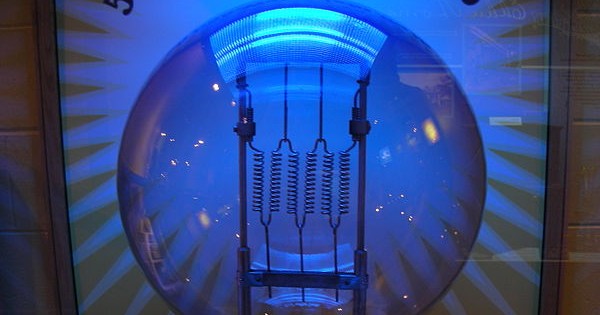
Why bother with science if it’s not your career, your bread and butter, your paycheck, where you go when you go to work? Why bother if you teach literature or raise children or take care of sick people or practice law or sell real estate or clean houses for a living? Why bother if you are getting an MBA or an MFA? Why not just let the scientists do their thing, and sure, let’s find a cure for cancer.
Here’s why I bother. And why, I think, more and more of us bother.
We have that human tendency to wonder about things. We puzzle, we question, we want to know. I wonder what it’s like up there on that red gleam we call Mars. I wonder where the moon came from, where language came from, where I came from. I wonder about the long memories of elephants. I wonder what those crows on my street are talking about. I wonder what my neurons are doing while I’m wondering what those crows are talking about.
To put it another way, we are incurably curious. I’m curious about how genes actually work, even if I might not entirely get it the first time around. I’m curious about how gravity affects time—slows it down. I’m curious about how bridges hold up the many tons of themselves and us as well.
And too, we humans are ingenious and we stand in awe of human ingenuity. To be present (at my computer) when the rover Curiosity was lowered by tether to the surface of Mars. To observe in my study in Seattle the control room in Pasadena. To realize how far inventiveness has brought us since my Grandmother Henry’s birth in 1895: electricity, the refrigerator, the auto, the radio, flight, TV, the telephone, the Internet, the Google driverless car, the X-ray and the MRI to see through flesh to bone or brain.
Finally, we sense the usefulness of science. Science enabled us to wipe out smallpox. Science enables us to generate electricity, build skyscrapers, read blogs on the Internet. It’s science, if anything, that will help us figure out how to save this world from ecological disaster.
But there are difficulties in bothering with science. The technical language of the professional science paper is a high wall, often unscalable even to scientists in other fields. How many geologists get genomics? How many biologists are big on the Big Bang? How many ecologists get excited about the Einstein Cosmological Constant? How many cancer researchers care for Cold Dark Matter? And what about the rest of us? Isn’t it all just too technical? Besides, aren’t scientists constantly changing their minds?
Science operates on the edge of what is known. Yes, there are doubts, hypotheses, and counterhypotheses. (What’s not in doubt is the evolution of life forms, including ourselves, from earlier forms, and Earth’s age—roughly 4.6 billion years.) But science is everywhere. Have you looked at your smart phone lately? Driven your automobile? Gone up in an elevator? Eaten dinner? Gone to a doctor? To a movie? Our civilization is saturated with science. Whether town councilor or U.S. senator, any policymaker owes it to the rest of us to strive for basic science literacy. Policymakers make decisions involving science all the time—about agriculture, the environment, health, land use, ocean use. And as citizens, can we really afford to know nothing about nuclear reactors, the water we drink, the fish we eat?
Any curious person who wants to stick a toe into the waters of science has lots of help. We have magazines such as Scientific American and Scientific American Mind, Science News, Discover, and National Geographic. We have columns and blogs such as Phil Plait’s “Bad Astronomy” on Slate, Carl Zimmer’s “The Loom” on Discover, and well, there’s this column. We have the immense and deep NASA website and that of the U. S. Geological Survey. Check out the San Francisco Exploratorium’s online exhibits.
Even if you were terrible in chemistry and worse in math, even if you were a lit major or a history major (as I was), it’s sweet to swim in the currents of science, learning a bit at a time. It’s good to rev up the neurons with new knowledge, master a few new vocabulary words each week, follow the drama and dance of new discoveries. Besides, science—in its jerky way, in its arcane language and minuscule steps, in its lab experiments and counter experiments and debates and further debates—is our lens into reality.

